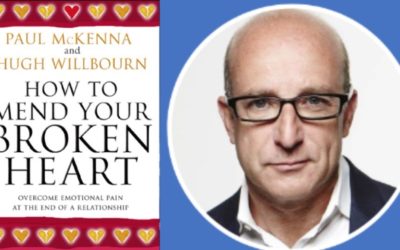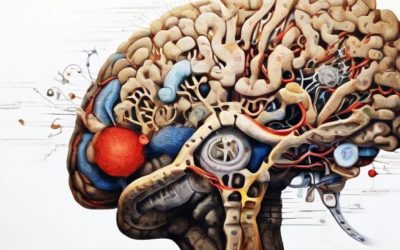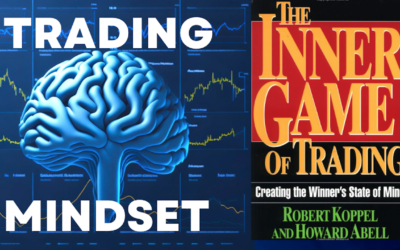Dr. Richard Davidson, a neuroscientist from the University of Wisconsin in Madison, and Dr. Sara Lazar, a neuroscientist based out of Massachusetts General Hospital and the Harvard Medical School gives an interview on his findings with meditation and its effects on the brain.
The following interview has been edited and condensed for clarity.
Host Bob Macdonald: Dr. Davidson, what was the most striking thing you found when you studied the meditation experts the Tibetan Buddhist monks?
Richard Davidson: Probably the most striking thing was in terms of the scientific findings was the presence of these very high amplitude gamma oscillations that occurred in the meditation period when they were meditating, but also were very prominent in their so-called baseline state. And I should say that these are if you will professional meditators. These are people who have an average of about 34,000 hours of lifetime practice and listeners can go do the arithmetic at home. But that's a pretty big number.
BM: What was going on in their brains that's different from what would be going on in say my brain?
RD: One of the important characteristics of these long term meditators if you will is that the distinction between the state of meditation in their ordinary state if you will is blurred.
This is the what we think of as the transition from a state into a trait. That is, it becomes an enduring characteristic of their minds and brains, rather than something transient that occurs only when they practice meditation.
Dr. Sara Lazar: Well we looked at brain structure and what we found is that there's several brain regions where there is more gray matter in the long term meditators compared to non-meditators. And as Dr. Davidson said that when you start meditating regularly that there is a shift that there's a blur between your meditation state and your everyday state.
And so we're interpreting these differences in gray matter to reflect that. That this is perhaps why and how you can get these shifts you're not meditation state looks more like your meditation state - the brain actually starts to rewire itself. And that's what we saw evidence for in these long term meditators.

SL: The most pronounced changes were in the insula. This is an area that's involved in integrating sensory experiences with cognitive thinking. And so you could think of that, sort of in a very loose hand-waving sort of way, as the mind body sort of area. We also found areas in the front of the brain which is an area involved in rational thinking and decision making.
BM: Dr. Lazar, we hear a lot about enlightenment, if meditation really does work. From a scientific point of view what is that possible do you see it?
SL: I think it's important to make a distinction between people who meditate for 20, 30, 40 minutes a day for stress reduction and people who are really committed to obtaining enlightenment. As Dr. Davidson pointed out, you could think of those monks as being professional meditators. And so I think that it really takes that sort of commitment -- full time commitment for many, many years -- in order to reach enlightenment. For the average Joe who's just meditating for stress reduction that that's not really a realistic goal.
BM: Dr. Davidson, you say that meditation could make people feel worse. What do you mean by that?
RD: It can exacerbate depression, it can precipitate psychosis. It can do some harm. It's really important for an individual who may be predisposed and have a history of some psychiatric difficulty to engage in meditation practice under the guidance of a teacher who is both a mental health practitioner as well as a meditation teacher.
And often if a person I think is doing worse it could very well be because the nature of the instruction is not as attuned to where the person is as it might be.
BM: Dr. Lazar, how do you feel about people going to a phone app for their guided meditations without a teacher present?
SL: The apps are like a book or any other recording or any other things that have existed in the past. I think they're great as a supplement but I don't think anything compares to having a teacher that you can talk to about your experience.
Mindful Living Tips and Tricks: Navigating Life’s Hustle with Zen Mastery
The Screen Time Siesta encourages you to tuck away your devices at least an hour before bedtime. Engage in a pre-sleep ritual—read a book, take a warm bath, or simply let your mind wander. This bedtime ballet ensures a restful night’s sleep.
Unlocking Personal Growth: Harnessing the Power of Artificial Intelligence
The Future of Personal Growth: AI-Driven Coaching
Imagine having a personal coach available 24/7, providing guidance, motivation, and support tailored to your unique aspirations. AI-driven coaching applications are revolutionizing the personal growth landscape by offering continuous feedback, progress tracking, and personalized advice.
Mindfulness Exercises for Stress Relief: A Comprehensive Guide
In the fast-paced world we navigate...
Self-improvement Techniques for Beginners
Reading for Personal Growth
Leaders are readers! And learning from mistakes is smart, but learning from the mistakes of others is wisdom and this wisdom can be gained from books. Books are a treasure trove of wisdom. Dive into self-help literature, biographies, or educational content that aligns with your goals.
How to Focus Better: A Comprehensive Guide
Discover effective strategies for...
Mastering Your Mindset: How Trading Psychology Can Improve Your Trading Skills
In the pursuit of mastering your mindset, incorporating mindfulness techniques can be a game-changer. Mindfulness involves being fully present in the moment, observing thoughts and emotions without judgment. In the context of trading, mindfulness can help traders stay focused, reduce stress, and make more rational decisions.
Shop Mindfulness Retreat Tickets Online: A Guide to Finding Inner Peace
Look into the instructors’ credentials. Are they certified in mindfulness practices? Read reviews and learn about their teaching philosophy. Some retreats focus on specific techniques like Vipassana or Zen meditation.
Top 7 Mind Enhancement Supplements For Sale
These supplements are designed to...
Land Strategies to Prevent Invasion from Small Boats and Dinghies
1. Coastal Surveillance Systems:...
15 Ways for Enhancing Focus and Concentration: A Comprehensive Guide
Multitasking may seem productive, but it often leads to lower focus and compromised work quality. When we swtich tasks, we are entering the next task with ‘attention residue’ from the previous task. Prioritize tasks and tackle them sequentially for optimal concentration.
Can Hypnosis Work to Get Over a Breakup? Hypnotist Paul McKenna Answers
Can Hypnosis Work to Get Over a...
Unlocking Human Potential: A Deep Dive into Neuralink’s Revolutionary Impact on Humanity
In the realm of technological...
The Ten Most Stressful Jobs in 2023 Require Dealing with High Pressure
Working in a high stress job can take...
What Happens to Your Brain During a Breakup?
Another chemical that can affect your brain during a breakup is norepinephrine. This hormone is released in response to stress, and it can cause physical symptoms like increased heart rate and blood pressure. When you’re going through a breakup, your norepinephrine levels can increase, which can make you feel anxious and on edge.
The Agony of Nasty Breakups: How to Minimize the Damage When Relationships Turn Toxic
While a measured, mutual parting of ways would be ideal, the reality is breakups tend to be messy. The more enmeshed the couple was, the harder the split. When we lose our primary attachment figure, emotional stability takes a major hit. The brain goes into withdrawal, struggling without its usual supply of mood-regulating hormones like oxytocin and dopamine.
Should I Contact My Ex Who Dumped Me?
If your ex dumped you, there’s a reason for it. Before contacting them, ask yourself if the conversation would actually be helpful to both of you. Is it something you both need? Or is it just something you want to do for your own benefit? Don’t force your ex to sit through your monologue or speech, with the sole intention of making you feel better while they get nothing out of it.
The Science of Positive Thinking: How Neuroscience Can Help You Achieve Personal Growth
One way is to practice reframing. Instead of stressing about a traffic jam, for instance, appreciate the fact that you can afford a car and get to spend a few extra minutes listening to music or the news, accepting that there is absolutely nothing you can do about the traffic.
Navigating the Emotional Landscape: A Comprehensive Guide on How to Get Over Someone You Love
Share your feelings with trusted individuals who can provide empathy, encouragement, and perspective. Joining support groups or seeking professional therapy can offer additional avenues for processing emotions and gaining valuable insights into personal growth.
Navigating Heartbreak: 6 Steps Women Who End Up Happier After A Breakup Do During The Healing Process
Experiencing the pain of a breakup...
Mastering Concentration: Proven Strategies on How to Improve Focus
Techniques for Enhancing Focus
Now that we’ve set the stage, let’s delve into actionable techniques for improving your focus:
1. Mindfulness Meditation
Mindfulness meditation helps you become more aware of the present moment. By practicing mindfulness, you can train your mind to concentrate better on the task at hand.
2. Get Adequate Sleep
A well-rested mind is more alert and capable of focusing. Ensure you get enough quality sleep to recharge your cognitive functions.
How to Move on from a Breakup When you Want to Stay Friends with Your Ex, According to a Therapist
Dear therapist, Living with my...
How to Heal and Open Your Heart After a Breakup
Opening up your heart again after a breakup can be scary, but it’s important to remember that love is worth the risk. Start by focusing on building strong friendships and connections with others. When you’re ready, consider dating again. Take things slow and don’t be afraid to be vulnerable.
Healing after a breakup takes time, but it’s possible. By acknowledging your feelings, taking care of yourself, learning from the experience, and opening up your heart again, you can move on and find love again. Remember, you are worthy of love and happiness.
Book Review: Never Split the Difference and Reverse Manipulation
Chris Voss spent more than two...
How Can I Improve Concentration and Memory?
Improving memory and concentration is...
Unlock Your Full Potential: How to Train Focus and Concentration
With all the apps getting better at...
“The Inner Game of Trading” Creating the Winner’s State of Mind, Trading Mindset Review
How to Develop a Trading Mindset is one of the most valuable skills to cultivate as a trader. This post walks us through how to have a trading mindset while reviewing the best selling classic ‘Inner Game of Trading’.
Igniting Your Inner Drive: Boosting Energy and Motivation
Shift your mindset by using positive affirmations. Replace self-doubt with encouraging statements like, “I can achieve my goals” or “I am full of energy.” These affirmations can motivate you and increase your self-belief.
How to Enhance Concentration and Focus: Strategies for Peak Productivity
Effective time management is crucial for maintaining focus and productivity. Here are a few techniques to consider:
– The Pomodoro Technique: Work in focused bursts, typically 25 minutes, followed by a 5-minute break. This cycle can help prevent burnout and maintain concentration.
– Time Blocking: Allocate specific time blocks for different tasks. This creates a structured schedule and minimizes multitasking.
Unlocking Potential: Hypnosis for Improving Concentration and Focus
Hypnosis allows individuals to access their subconscious minds. This is where deep-seated beliefs and thought patterns reside. By targeting the subconscious, hypnosis can address any underlying issues that may hinder focus.
Online Course for Trauma Recovery
Healing trauma is a profound and transformative journey, and with the guidance of these 13 experts, you can embark on a path to wholeness. The online course for trauma recovery offers a comprehensive approach to healing, drawing from the collective wisdom of leading professionals in the field. The power to heal is within reach, and with the right knowledge and support, you can overcome trauma and live a more fulfilling life.
Habit Stacking Examples to Get Over a Breakup
Habit stacking can be a powerful tool to help someone recover from setbacks like breakups. The key is to incorporate positive habits into their daily routine to support emotional healing and personal growth. Here’s an example of how someone can use habit stacking in the context of a breakup recovery plan
Abraham Maslow’s Hierarchy of Needs Chart
In this chart: Physiological Needs...
Revealing the Secrets to Healthy Aging: Preventing Cognitive Decline
Your diet plays a pivotal role in brain health. Incorporate brain-boosting foods rich in antioxidants, omega-3 fatty acids, and vitamins. Think berries, fatty fish, nuts, and leafy greens. Also helpful is the acronym SMASH which is for Omega 3 rich fish such as Sardines, Mackerel, Anchovies, Salmon, and Herring.
2. Mental Stimulation
Exercise Your Brain: Engage in regular mental workouts. Solve puzzles, learn a new language, or take up a musical instrument. These activities challenge your brain and promote cognitive fitness. This has been proven to be particularly effective in a study about centenarian nuns!












































